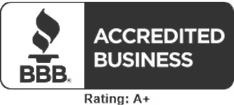Thinking About Getting a New Credit Card?
Opening a new credit card might feel like a smart move. You may be thinking about building credit, earning rewards, or handling a large purchase. But credit cards are a common source of financial trouble if not used wisely. Before you fill out that application, take a few minutes to ask yourself these key questions. A little planning now can protect your credit score and save you from future debt.
1. Do You Actually Need a New Credit Card?
If this is your first card, it can be a good tool for building credit—when used responsibly. But if you already have credit cards, think carefully. A store offer like "30 percent off today if you open a card" can be tempting, but that discount might not be worth the long-term cost. Interest rates, fees, and credit score impacts can add up quickly.
2. What Are the Fees and Interest Rates?
Many cards offer low introductory rates, but those rates are temporary. Look closely at the regular APR and any annual fees. A card with travel perks or cashback might sound great, but make sure the value of the rewards is worth the cost of the fees. If you’re not sure, talk to someone who understands credit terms before applying.
3. What Is Your Credit Utilization Ratio?
Your credit utilization is how much of your credit you’re using compared to your total available limit. If your ratio is over 30 percent, a new card could help reduce that percentage—if you don’t add to your balance. However, this strategy only works if you continue to make payments and avoid overspending.
4. Is This the Right Card for Your Needs?
Cards come with different features. Some offer cashback, others focus on travel rewards or balance transfers. Look for a card that aligns with your spending habits and financial goals. Also, review how easy it is to redeem rewards, how long the promotional rate lasts, and whether the perks are ones you’ll actually use.
5. Do You Have Pre-Approval?
Pre-approval helps you avoid unnecessary credit checks. When a lender reviews your credit report, it can temporarily lower your score. Getting pre-approved means you’re more likely to be accepted and won't risk the dip in your credit for nothing.
6. Can Your Credit Score Handle a Hard Inquiry?
Every time a lender pulls your credit, your score might drop a few points. If you’ve recently applied for other credit, your score may already be affected. It’s best to wait a few months between credit applications, especially if your score is already on the lower side.
7. Are You Managing Your Current Balances Well?
If you’re already struggling with credit card debt or have missed payments, now is not the time to open another account. Adding another card will likely add more stress and more debt. Focus on paying down what you owe first. If you're overwhelmed, our certified credit counselors can help you create a debt management plan that fits your budget.
8. Do You Tend to Overspend?
Credit cards can encourage impulse buying, especially if you're chasing points or rewards. If you find it hard to stay within your budget, adding a new card might make that worse. Stick to what you can afford to pay off in full each month so you avoid interest charges and stay in control.
9. Will You Be Applying for a Loan or Mortgage Soon?
Applying for a mortgage or auto loan in the near future? It’s best to hold off on new credit card applications. A lower score, even by a few points, can affect the rate you receive or your ability to qualify at all. If you’re not planning a big financial move, opening a card now and using it wisely could help your score in the long term.
10. How Does the Card Issuer Handle Customer Service?
Not all credit card companies are the same. Look at their policies on fraud protection, missed payments, and dispute resolution. What happens if you’re late with a payment? Can you speak with a real person when you have a problem? These details matter more than you might think.
Make the Smart Choice for Your Finances
A credit card can be a helpful tool or a financial trap. It all depends on how and why you use it. By asking these questions first, you can avoid common credit mistakes and make a choice that supports your goals.
If you’re unsure whether opening a new credit card is right for you, our team at Family Credit Management is here to help. We can walk you through your options and help you build a smart plan for your credit and your future.
Get a free debt management review of your existing debt now









-min.avif)

